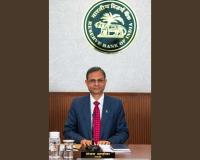Cabinet Approves Bills for "One Nation, One Election" Implementation

New Delhi, December 12 – The Union Cabinet on Thursday approved the introduction of bills aimed at implementing the "One Nation, One Election" initiative. This move follows recommendations made by a high-level committee chaired by former President Ram Nath Kovind, which were accepted by the Cabinet in September.
The committee outlined ten key recommendations to facilitate simultaneous elections across the country:
Key Recommendations:
-
Legal Mechanism: The government should establish a legally acceptable framework to reinstate the cycle of simultaneous elections.
-
First Phase Implementation: Conduct simultaneous elections for the Lok Sabha and all State Assemblies in the first phase.
-
Second Phase: Conduct municipal and panchayat elections within 100 days of the Lok Sabha and State Assembly elections.
-
Designated Date: The first sitting date of the Lok Sabha after a general election will be notified by the President as the "designated date" for synchronization purposes.
-
Unified Term Adjustment: Following the "designated date," the term of all State Assemblies formed through elections will align with the Lok Sabha’s full term, requiring a one-time adjustment.
-
Mid-Term Elections: In cases of no majority or a no-confidence motion in the Lok Sabha, fresh elections may be conducted. The new Lok Sabha will serve only the remainder of the original term.
-
Shortened Lok Sabha Terms: New Lok Sabha terms will be limited to the time remaining in the original term if mid-term elections occur.
-
State Assembly Terms: New State Assemblies elected mid-term will continue until the full term of the current Lok Sabha, unless dissolved earlier.
-
Unified Voter System: The Election Commission, in consultation with State Election Commissions, will prepare a single voter list and implement uniform voter photo identity cards (EPICs).
-
Logistical Preparedness: The Election Commission will plan and procure necessary resources, including Electronic Voting Machines (EVMs) and Voter Verifiable Paper Audit Trail (VVPAT) devices, and ensure adequate deployment of polling personnel and security forces.
This landmark initiative aims to streamline the electoral process, reduce costs, and enhance governance efficiency. However, it has sparked debates among political parties and experts regarding its feasibility and implications for federalism.






